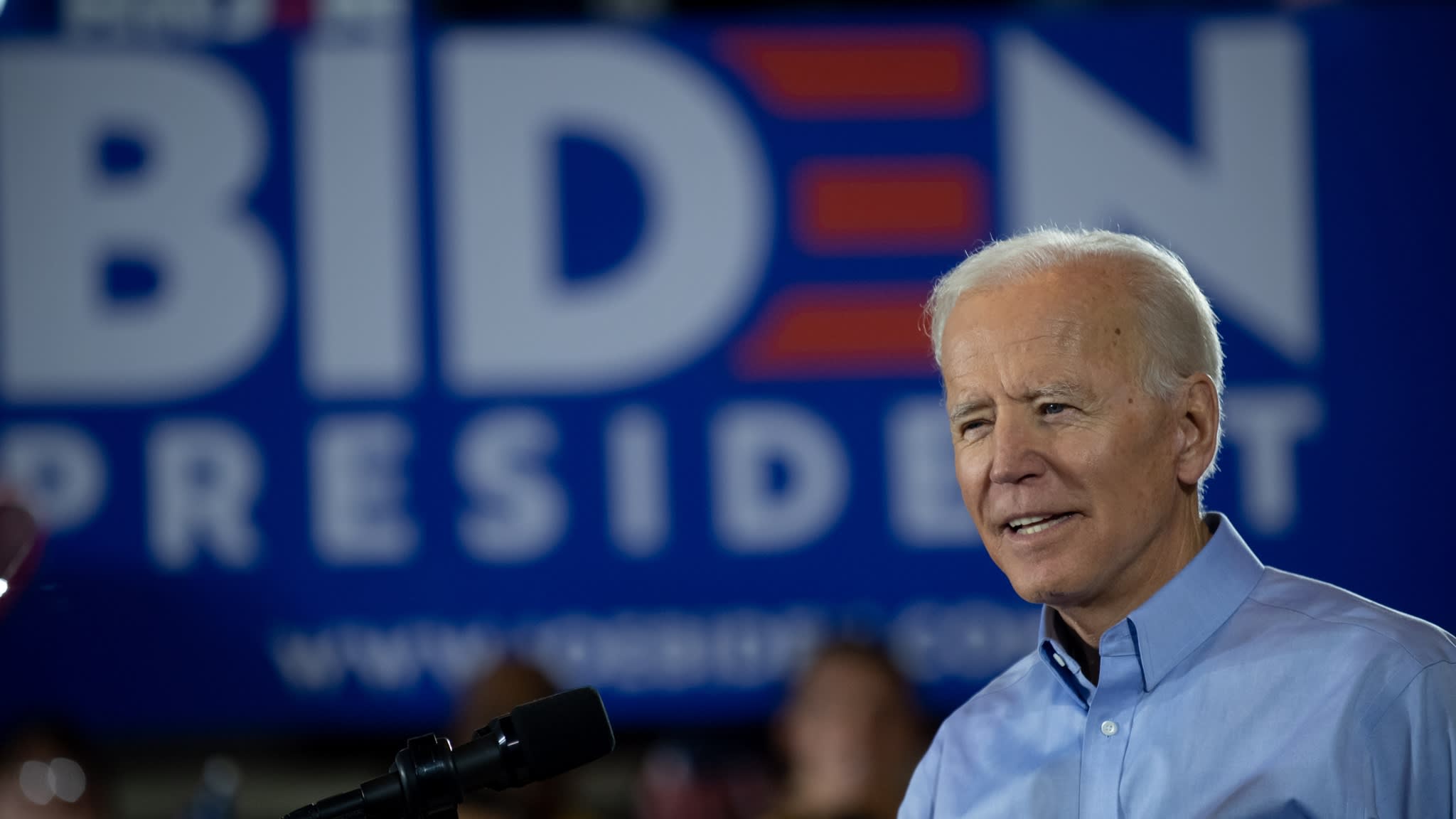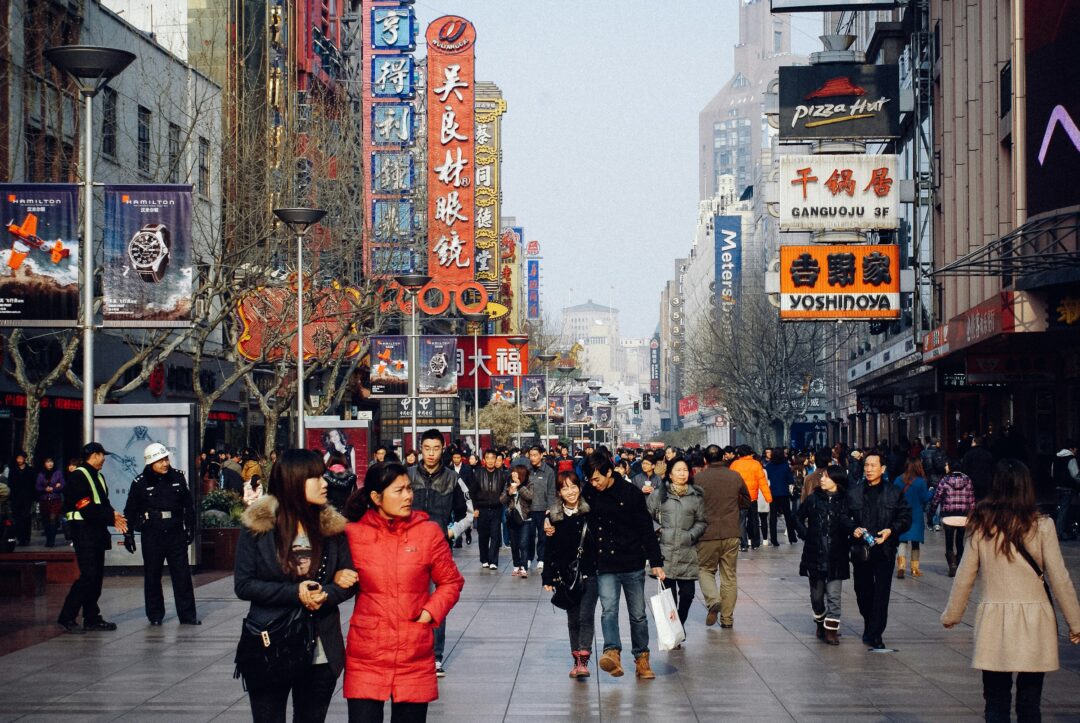I happened to be in South Africa when the word came, late last month, that a de facto military coup was underway next door in Zimbabwe, which would eventually lead to Robert Mugabe, the country’s nonagenarian leader, finally resigning after 37 years in power.
But my mind immediately flashed back to Asia, because of some striking similarities between Mugabe’s fall and that of other supposedly entrenched autocrats. There are some cautious lessons to take away – and some signs of things to come.
First, the similarities.
Mugabe was finally brought down, according to the widely accepted analysis, less by his own miscalculations than by the machinations of his unpopular wife. Grace Mugabe was known as “Gucci Grace” for her profligate spending and taste for designer fashions, diamond dealing and overseas property purchases. Even those who still respected the old man as the country’s independence hero had no time for the wife, who was said to harbour her own political ambitions. Her purge of political rivals, called “the bedroom coup”, finally prompted the military to act.
What if North Korea is the problem, not Kim?
Grace Mugabe reminded me of the late Siti Hartinah, also known as Ibu Tien, the wife of Indonesia’s long-time strongman, the late president Suharto, who was toppled in 1998 after more than 30 years in power (30 years the seeming shelf life for despots). Madame Tien, who was also a close adviser to her husband, became known as “Mrs Ten Per Cent”, a reference to the amount she was said to skim off any profitable business project in Indonesia. After her death, the Suharto children continued the family business ventures.
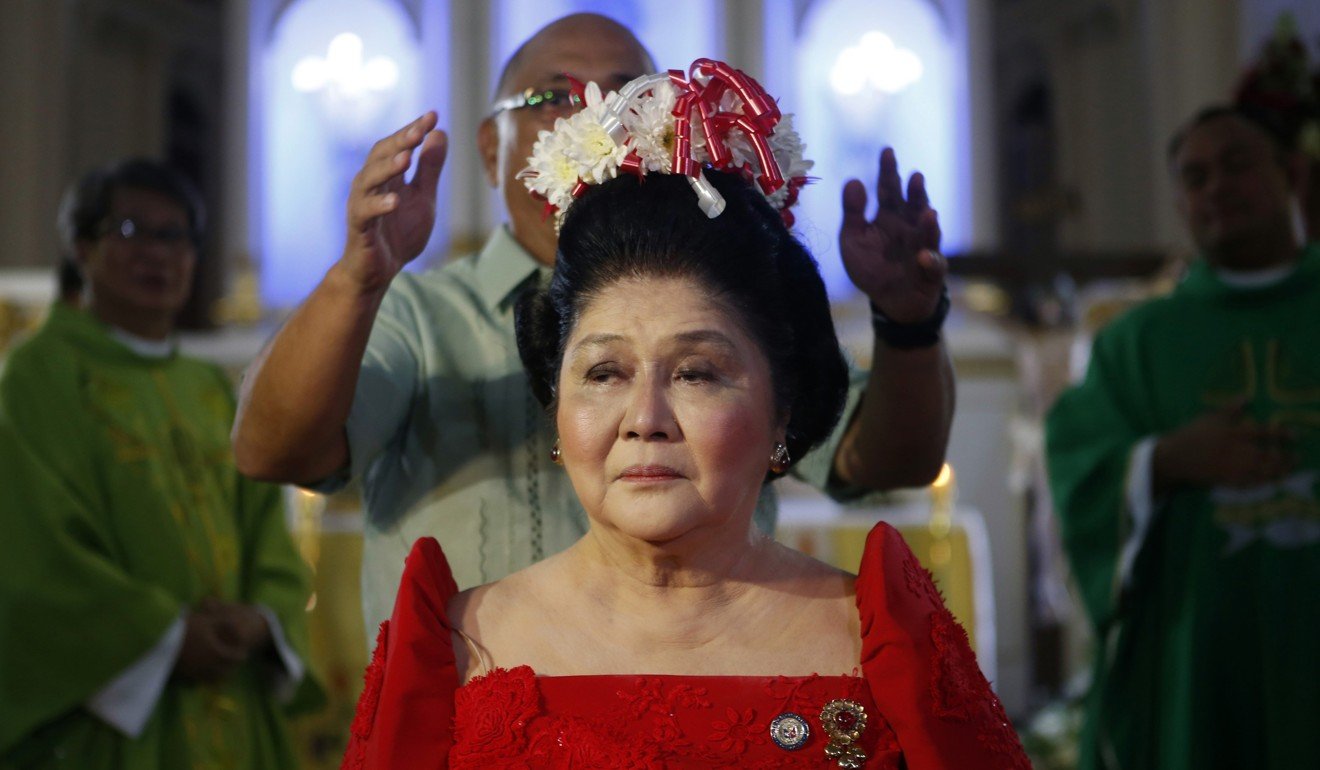
Of course Madame Ten Per Cent was only following in the pattern set earlier by the jet-setting Imelda Marcos, the wife of the long-time Philippines dictator Ferdinand E. Marcos. So intertwined was Imelda in her husband’s presidency that theirs became known as “the conjugal dictatorship”. Marcos was finally toppled in 1986, and no one can forget crowds in Manila swarming the abandoned palace filled with thousands of pairs of Imelda’s shoes. The Marcoses are said to have absconded with some US$10 billion in ill-gotten wealth, mostly never recovered.
It seems the lesson is never learnt. The Malaysian prime minister, Najib Razak, is embroiled in a scandal involving money allegedly stolen from a sovereign wealth fund called 1MBD. Court filings by the US Justice Department allege that US$30 million in misappropriated funds went on jewellery for Rosmah Mansor, the prime minister’s wife – though she is not named in the papers. The haul allegedly includes a 22-carat pink diamond in a necklace. Rosmah has also been accused of being a serial shopper.
Trump’s media war: straight from China’s playbook
The other lesson autocrats never seem to learn is the danger of trying to install family members as successors. And here, Cambodia’s long-serving strongman Hun Sen should take note.
I interviewed Hun Sen in Phnom Penh in the late 1980s when, in his early 30s, he was one of the world’s youngest prime ministers. Now 65, he is one of the longest in power. But he knows he is not invincible. A lengthy hospital stay in Singapore this year cast a spotlight on Hun Sen’s plans to have his sons succeed him; elder son Hun Manet is a West Point-trained lieutenant general in the armed forces, and younger son Hun Many is a member of parliament.
As Mugabe learnt, long-time autocrats rarely can manage their own successions. Too many other contenders have been waiting too long to allow power to remain a strictly family affair.
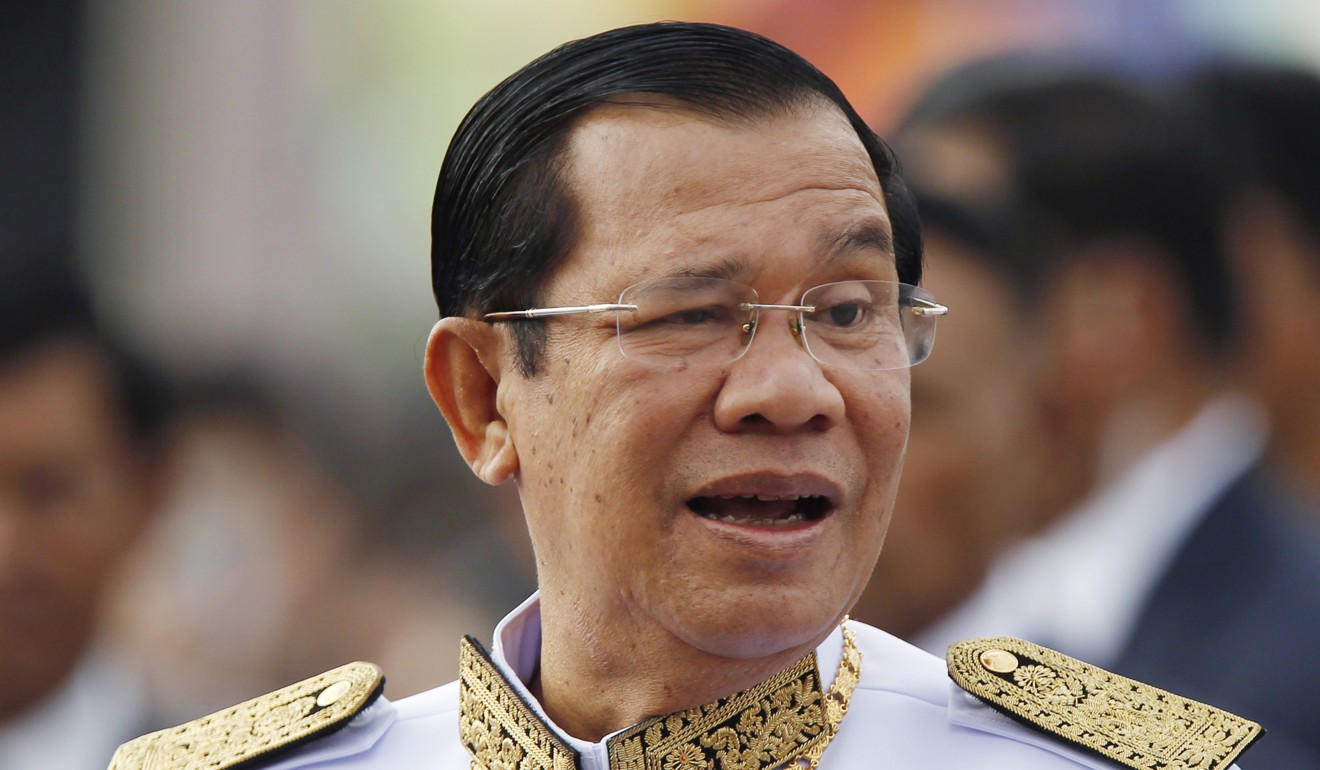
Another striking feature about Zimbabwe’s military intervention was the soldiers’ insistence that their action was not a coup. The generals went to great lengths to convince Mugabe to resign, and having his ruling ZANU-PF Party name his former deputy, Emmerson Mnangagwa, as the new president – all to maintain a veneer that the change at the top followed the constitution.
That marks a remarkable evolution on the African continent, where coups are now looked on with disfavour, and can trigger sanctions and suspension from the African Union.
The mood in Africa also stands in sharp contrast to Thailand’s 2014 coup, where the generals seized all power, detained top politicians, banned all political activity and curtailed the media. The Thai military now seems as firmly entrenched as ever, with precious few consequences for toppling a civilian government. Maybe the Association of Southeast Asian Nations should take a lesson from the African Union.
First 100 days of President Trump: like a drunk on a highway
There is one lesson that Zimbabweans might take from Asia and other places that have experienced similar upheavals at the top; removing a long-time autocrat does not necessarily mean the system he created will collapse. Vested interests remain in place, and the hoped-for, meaningful change might still be a long way off.
Zimbabweans were rightly exuberant that Mugabe’s resignation might give way to a brighter future, where the country could rid itself of corruption and misrule and begin to mend its badly battered economy. But Mnangawa, 75, was a long-time Mugabe stalwart, a man implicated in the ethnic massacres in Matebeleland in the 1980s and with a reputation for ruthlessness that earned him the nickname “the Crocodile”. He has stacked his new cabinet with mostly old faces and added a few generals to the mix.
The same could be said of the Philippines, where the 1986 “People Power” revolution restored democracy, but where the feudalistic power structure, the grip of elite tycoon families and unequal land distribution remained the same.
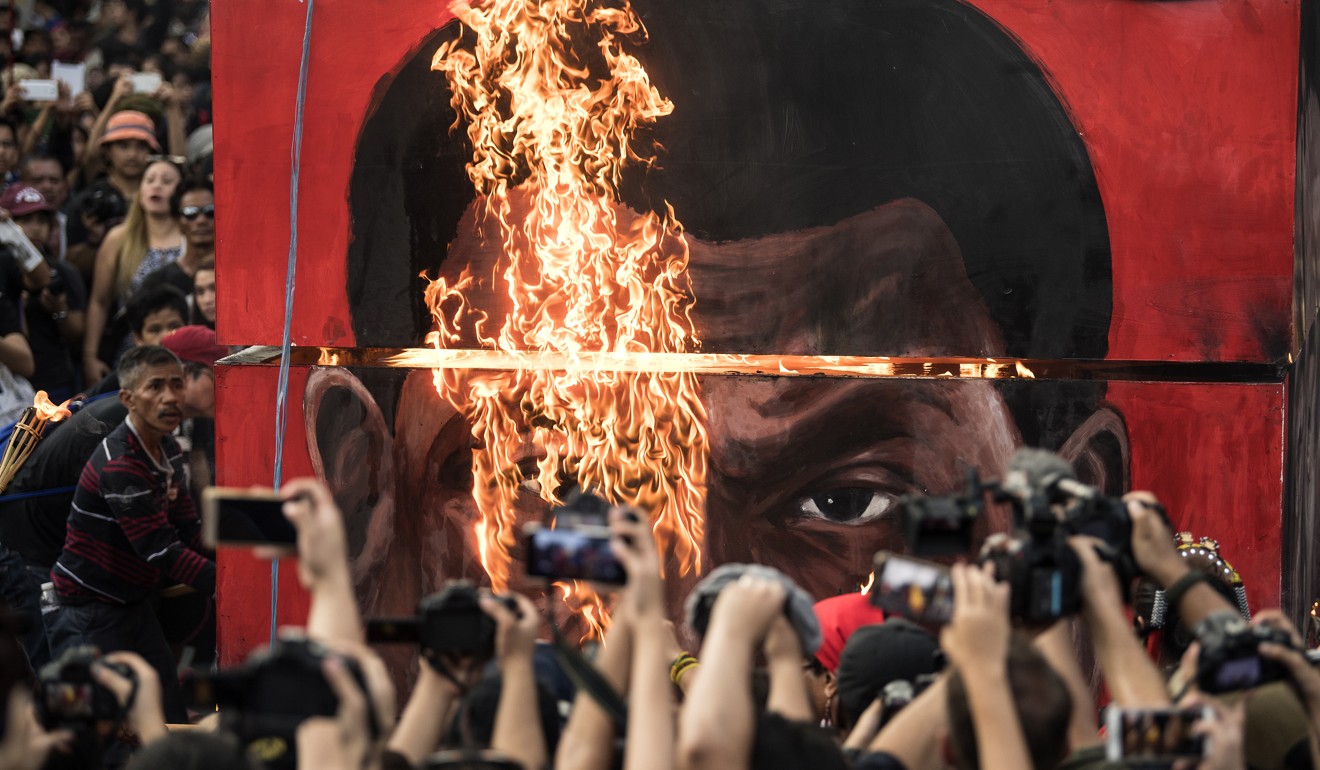
The Philippine example might be instructive for Zimbabweans for another reason; under the current strongman president, Rodrigo Duterte, the country seems to have swung full circle to the authoritarianism of the Marcos days. Marcos, like Mugabe, turned a once prosperous, democratic country into a despotic economic basket case. Now Duterte, with his bloody “war on drugs”, extrajudicial killings and fondness for martial law seems intent on taking the Philippines right back to the darkest days of the dictatorship. He has even engaged in Marcos revisionist history, allowing the late dictator to receive a hero’s burial in Manila, 30 years after he was ousted from power.
One final lesson should be a cautionary tale for Asia’s autocrats; the wily Mugabe seemed firmly entrenched, controlling all the levers of power in Harare – until one day, he wasn’t. His fall was as unexpected as it was swift.
When the tide finally turns, it can turn with a vengeance. When people are poor and struggling, and a country is mired in poverty and corruption, even the most obdurate dictator can find himself helpless to negotiate the terms of his own departure. I saw that nearly 20 years ago in Jakarta with the fall of Suharto, which seemed unimaginable just a year earlier. Now it has happened with Mugabe. Hun Sen and Kim Jong-un had better take note.
Original link: https://www.scmp.com/week-asia/opinion/article/2124478/what-do-kim-jong-un-and-duterte-have-learn-mugabes-fall
